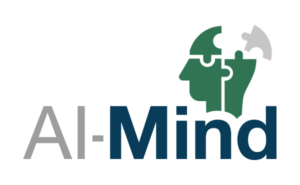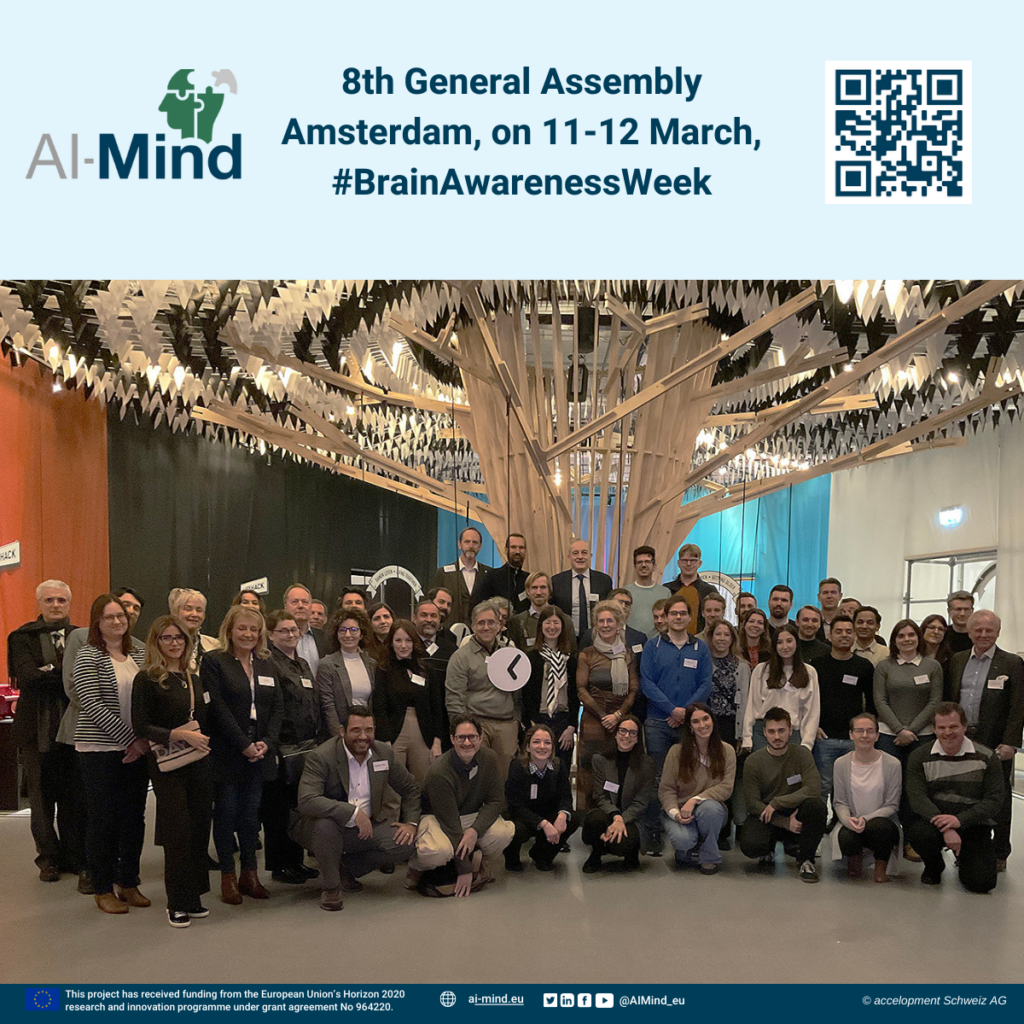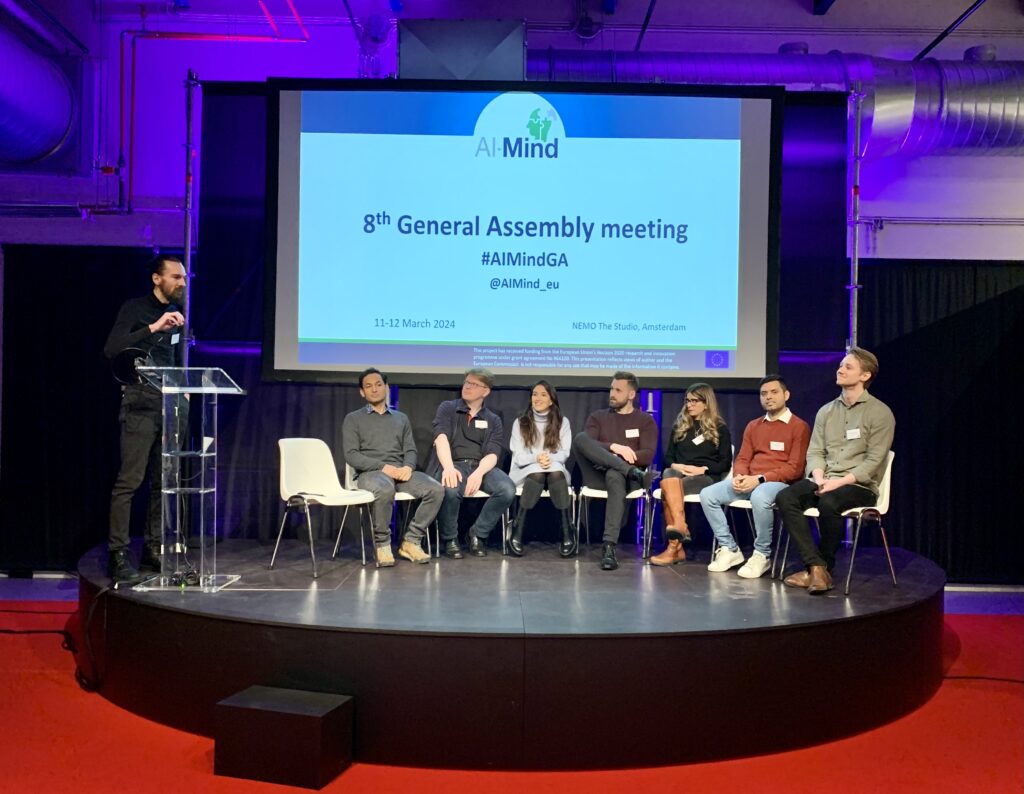Takeaways from AI-Mind’s 8th General Assembly
The AI-Mind Project consortium gathered for its 8th General Assembly meeting hosted by partners from The Radboud University Medical Center (RUMC) and Oslo University Hospital (OUS) in Amsterdam, the Netherlands. The meeting held at the iconic Nemo Museum – the Studio, brought together more than 50 in-person attendees and an additional 10 joining online, representing both the AI-Mind consortium and external speakers. The #AIMindGA coincided with Brain Awareness Week, making the event an excellent opportunity to raise awareness of the importance of brain health.
The AI-Mind General Assembly commenced with a warm welcome from the local host, Dr. Tim Govers (RUMC), setting the stage for two days of enriching discussions and insights into the project’s progress. The project coordinator, Dr. Ira Hebold Haraldsen (OUS) provided a comprehensive overview of the project progress and highlighted the key steps to be taken to bring the AI-Mind tools to their validation in the clinical setting.
On the first day, all Work Package (WP) leaders presented the major achievements and challenges that occurred within the last months, including updates from the AI-Mind study that now welcomes participants to their 4th and last visit. Insights shared across WPs aimed to foster cross-disciplinary understanding and strategize dissemination of research results.
- The project reached its mid term marking the successful completion of half of its milestones and deliverables.
- Partners representing clinical sites shared strategies for minimizing dropouts among study participants, ensuring robust data collection for further analysis.
- The artificial intelligence (AI) models being developed can be tailored to meet the specific needs of clinicians in the decision-making process, enhancing their utility in real-world healthcare settings.
On the second day, the assembly featured a series of insightful lectures from external speakers followed by Q&A sessions.
- “Making sense of complex predictive model with variable importance analysis” by Bertrand Thirion (Inria)
- “Capacity management in healthcare: integral alignment of demand and supply and the effect of variability” by Gréanne Maan-Leeftink (University of Twente)
- “Innovation at the Heartbeat” by Henk Vermeulen (Capgemini)
- “System dynamics perspective on Alzheimer’s disease prevention, diagnostics and treatment” by Marcel Olde Rikkert (Radboudumc Alzheimer Centrum)
“Do you have a concrete plan to involve clinicians in your work on the AI model development?” – asked Dr. Ainar Drews (The University of Oslo) during a panel discussion featuring young researchers from the project: Mats Tveter, Thomas Tveitstøl, Vebjørn Andersson, Ramesh Upreti, Ana Perez Teseyra (OUS), Antti Kinnunen (Helsinki University Hospital), Rabindra Kadka (Oslo Metropolitan University) and Soraya Alfonsín (The Complutense University Of Madrid). Bringing clinicians, electroencephalogram (EEG) and AI experts together allowed Ainar to steer the discussion towards the ongoing work of key importance, namely the development of AI algorithms with the health data collected within the study.
A highlight of the second day was the workshop on “Ethical-Sociaoeconomic implications and the need for a common language” prepared jointly by Prof. Rosella Di Bidino (Università Cattolica Del Sacro Cuore) and Dr. Daniel Irabien Peniche (Tallinn University). In interdisciplinary research projects, such as AI-Mind, where experts from diverse fields converge, the challenge of finding a common language can be daunting. Each discipline brings its lexicon, methodologies, and perspectives, often leading to inefficiencies in communication. To address this challenge partners were actively participating in this dedicated workshop aimed at fostering a shared understanding of the terms and concepts used within the AI-Mind framework.
Participants joining in person had also an opportunity to explore the Living Looonger exhibition and engage in the interactive displays.
The 8th General Assembly of the AI-Mind Project stands as a confirmation of the dedication and collaboration of researchers and non-academic partners in the pursuit of innovative solutions for the benefit of patients. With renewed momentum, the consortium looks forward to further advancing the frontiers of dementia research through the integration of AI technologies.


